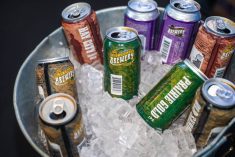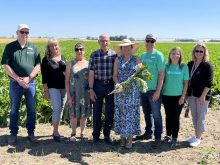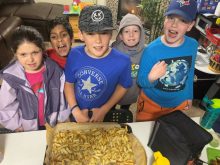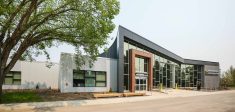A new youth academy at the University of Alberta aims to build on a longtime educator’s philosophy and give students a chance to get their hands dirty and feet wet.
Frank Robinson started at the U of A in 1986, specializing in poultry production and physiology. He’s a longtime believer in “experiential” learning.
To celebrate Robinson’s teaching style and legacy, a group of interested individuals came together to create Frank Robinson Youth Academy for Nature, Environment and Feeding the World (FRYA). The official opening was celebrated during a reception at the University of Alberta this spring.
Read Also
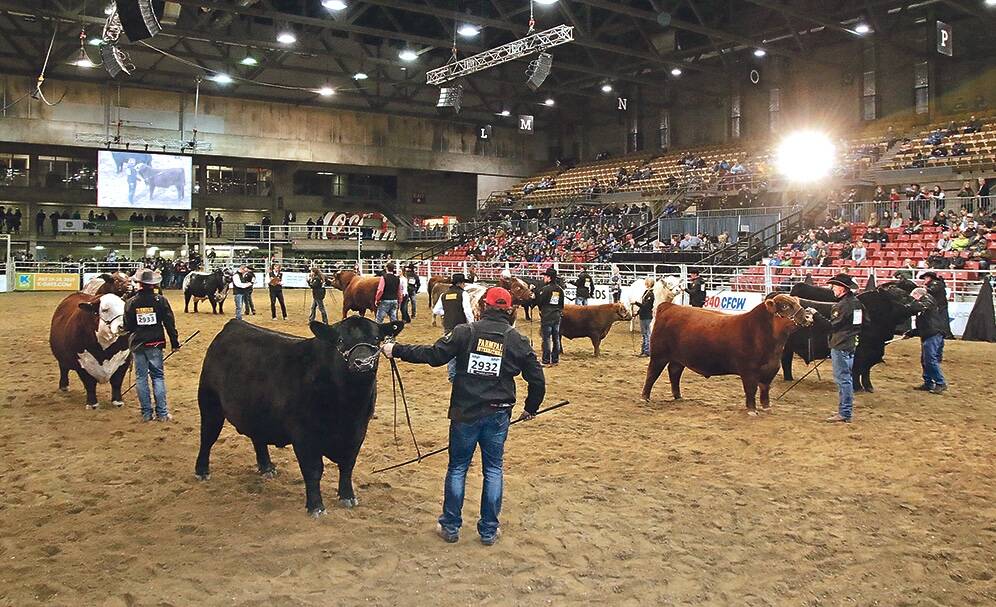
Farmfair International boosts accessibility with weekend schedule shift
Farmfair International is changing its scheduling format to include the weekend and hopefully attract even more attendees.
“We’ve long been supporters of the programs that seize upon the opportunity to provide hands-on experiential learning so the students and teachers can relate to what is being taught in the classroom and bring it to the world of work,” said Eric Newell, chancellor emeritus (2004-2008), and a member of the Newell Family Foundation, a major donor to the program. Plans for FRYA have been in development since December 2022. Newell said he and his family see the value of internships and workshops, which can be a stepping stone to a rewarding career.
- RELATED: Ag resources for teachers released
“We can’t gloss over the work that Frank Robinson has been doing with the university programs like Heifer in your Tank and the very successful Agriculture, Life and Environmental Sciences (ALES) mini-internship programs. The outcome of all this is students getting a tangible work experience to put on their resumés, and in most cases, receive confirmation that their learning is relevant. A very high percentage of them get their start in careers because of it.”
Newell said Robinson is widely known and respected as an inspirational voice for youth and students. “These unique, inspirational people like Frank Robinson… can take interesting experiences and make them awesome. They just inspire a huge passion for learning. It is a huge factor in making for a good student experience.”

He said FRYA’s creation is a well-deserved recognition for Robinson. It will focus on education and building youth futures as well as supporting young Canadian leaders and engaging them in real-world issues.
In addition to the ALES mini-internship program, the academy will include activities for students from kindergarten to Grade 12. They will receive hands-on learning, not just in agriculture, but in forestry, agri-foods and environmental sciences.
The ‘spark moment’
Robinson took the podium at the event and talked about the “spark moment,” when things shift and people get a new understanding of their career opportunities.
“Do you think the next generation will have the same diversity of experiences that you have? COVID kind of messed things up. People did a lot more things online and there was a lot less human interaction. We’ve cut out a lot of opportunities for experiential learning due to budget cuts. I just worry that if we aren’t working hard to make more initiatives.”
Robinson noted the development of There’s a Heifer in Your Tank program, which was part of Animal Science 200. Students had to answer questions about agriculture and explain the answers to the public. Over 10 years, 1,000 students completed the program. Presentations for the There’s a Heifer in Your Tank were held at the University of Alberta, as well as at communities all over rural Alberta.
The mini-internship program began in 2016 when a student lamented that she could not get a summer job in agriculture because she had no experience. Robinson put together a three-day program that ran during fall and spring reading weeks. Two interns were placed at a farm, in government offices or in other places where they could gain experience.
Since the fall of 2016, 995 students have participated in the mini-internships. The program helped students gain confidence, gave them new contacts and experiences and helped them network and gain summer employment. The mini-internships are now being handled by two staff, Vicky Horn and Allie Dunlop. Horn is more knowledgeable about agriculture, while Dunlop has a background in environmental sciences.
Several goals
FRYA chair Susan Schafers, a former egg farmer, said the organization has several goals. One is promoting food security. The second is building connections with youth and nature.
“We want to make sure that we are supporting and enhancing cultural diversity in the agricultural and environmental sectors. And we want to have some of these hands-on experiential learning opportunities that have youth consider careers in agriculture and the environment.”
Schafers said the mini-internships will be the flagship of FRYA. Educational programs have been developed at the dairy unit and at the Pig Science Centre on the University of Alberta’s south campus farm. There are also plans to create an educational program for students to work with poultry. FRYA will interface between a university and science setting, and figure out the best practices to teach to students, teachers, resource people and industry people.
“We want to encourage teachers and help them if there are ideas about how to teach students creatively to develop a spark moment. That’s what we want to do and that’s what FRYA is going to be doing,” Schafers said, noting that Robinson is slowly transitioning to retirement.
“I think the organization was formed to really take and build on Frank’s legacy. How can we continue all the work he started, continue it on in a structured way, in a way that could be more sustainable financially?”
The group has several donors aside from the Newell Family Foundation, and plans to apply for federal funding. “We’re in the starting phase. We’re developing a work plan for the next two to three years, trying to figure out some programming that would happen in the spring and in the summer over at south campus,” Schafers said.
Since the organization is so new, there are also a lot of logistics to figure out. FRYA hopes to partner with organizations outside of animal agriculture.
“Having the breadth of industry, you’re not just focused on primary agriculture. We want to open the whole continuum that is about science, nature and feeding the world. There are so many facets to that. I think we’re just starting,” Schafers said.




